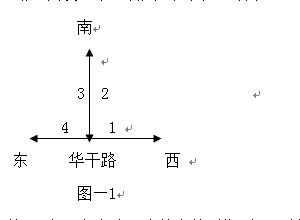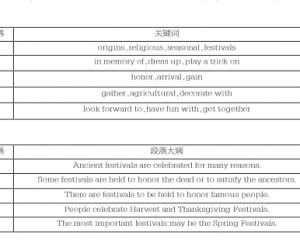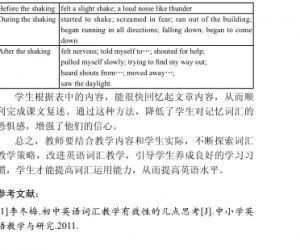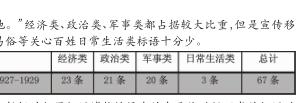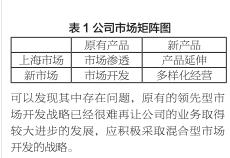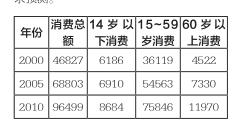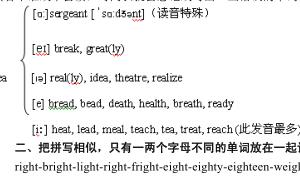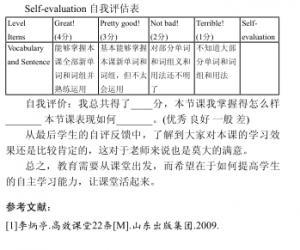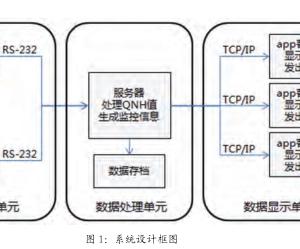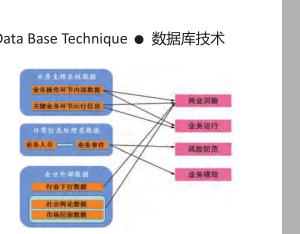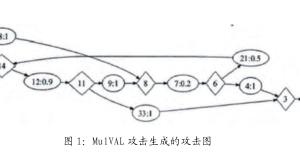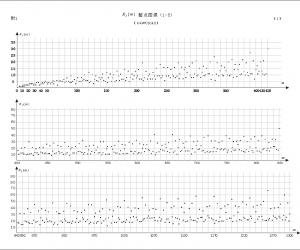The Internal Dynamics of Dramatic Monologue in Tennyson's Ulysses
【摘要】“戏剧独白”作为戏剧动作的一种代表形式,具有 其独特的魅力,它能达到直接对话所不能达到的目的,将 戏剧和推向一个新的高度,从而给予读者更为强烈的情感冲 击。本文以丁尼生《尤利西斯》为研究文本,通过对诗人、 话语者、读者和听众的比较分析,更好的探索戏剧独白的独 特性特点,用以阐释诗人和话语者的分割对欣赏戏剧独白的 重要性。 【关键词】《尤利西斯》 戏剧独白 话语者 Ulysses is the Roman name of the Greek hero Odysseus. Lord Alfred Tennyson reworks the ?gure of Ulysses by combining the ancient hero of Homer's Odyssey and the medieval hero of Dante's Inferno. The poet assimilates Homer's setting that Ulysses returns to his homeland—Ithaca and Dante's expression of longing for knowledge. In the poem, Ulysses declares his speech when he has come back to Ithaca and wants to embark on his ?nal voyage. Ulysses is written in 1833 and published in 1842 shortly after the death of his best friend Arthur Henry Hallam, therefore, it is considered as an elegy for the friend who died in 1833. Tennyson employs the form of dramatic monologue to compose the poem. The definition and the criterion of the monologue are not perfectly stated. M. H. Abrams defines its three characteristics as follows: (1) A single person, who is patently not the poet, utters the speech that makes up the whole of the poem, in a specific situation at a critical moment…. (2) This person addresses and interacts with one or more other people; but we know of the auditors' presence, and what they say and do, only from clues in the discourse of the single speaker. (3) The main principle controlling the poet's formulation o what the lyric speaker says is to reveal to the reader, in a way that enhances its interest, the speaker's temperament and character. (71) Generally speaking, a dramatic monologue must have a speaker who is not the poet, a listener or audience, an occasion and some interplay between the speaker and the listener. When referring to dramatic monologue, people first come up with Robert Browning's My Last Duchess which is often considered as its model. As a poet of this genre, Tennyson might be not as famous as Browning. In this short essay, Ulysses is analyzed from the perspective of dramatic monologue. First up, the essay focuses on the relationship between the speaker and the poet. In Ulysses, the entire poem is spoken by a single character—Ulysses. Since the speaker of the poem is first person, there is no doubt that subjectivity is shown unintentionally. Nevertheless, the subjectivity is not shown by the poet but the speaker. The speaker is different from thespokesman of the poet—the speaker in the lyric poetry. The speaker in a dramatic monologue poem separates himself from the poet. In Ulysses, the speaker is dramatized as the king of Ithaca who is tired with the tedious life on the island and whose yearning for new experiences and knowledge revives and increases when he reminisces of his past adventures. In the first stanza, we can safely get that the author is not like the speaker who is the king and rules the savage race. Also, from the following lines, it reveals that the speaker is not the author himself. Both Browning and Tennyson consider that the romantic poetry in which poets reveal themselves too much. What's more, Browning declares in his 1842 Dramatic Lyrics: “so many utterances of so many imaginary persons, not mine.” Through the stated discussion, it is safe to get the conclusion that the speaker of Ulysses is not the author Tennyson. It is out of question that the speaker is not the poet. Besides, the speaker Ulysses and the poet Tennyson have something in common. It is known that almost all the Tennyson's poems are directly or indirectly related to the death of his friend—Arthur Hallam, such as In Memoriam, and Break, Break, Break, and Ulysses and Crossing the Bar and so on. Not to mention the poem is composed in the first few weeks after Tennyson learned of the death of his friend. According to Tennyson's own note, “The poem was written soon after Arthur Hallam's death, and it gives the feeling about the need of going forward and braving the struggle of life perhaps more simply than anything In Memoriam”(罗经国 175). What's more, “There is more about myself in Ulysses , which was written under the sense of loss, and that all had gone by, but that still life must be fought out to the end”(175). Ulysses, who symbolizes the grieving poet, declares his resolution to push forward in spite of the awareness that “death closes all”. The poet creates the figure of Ulysses out of the feeling that he should get rid of the grief and that he hopes to renerve to brave the struggle of life. There are some emotional common points between the poet and the speaker. Both Tennyson and Ulysses want to explore the untraveled world with an insistent spirit and yearn for knowledge and new life experience. Many lines reveal not only the speaker's desires and emotions but also the author's thirst and yearning. “I cannot rest from travel: I will drink / Life to the lees”. These two lines convey both Ulysses and Tennyson want to taste all the bitterness and sweetness of life. They cannot stop travelling and struggling with life, which shows their strong fighting spirit. The speaker holds that as though life were to breath, even if one had several lives that are not enough for him to travel. And the rest of his life is short and Ulysses regards every hour is saved from death. It should be usedas a bringer of new things instead of staying at home. The poet Tennyson agrees with the speaker and believes that one should not idle away one's time but “follow knowledge like a sinking star” and enrich human thoughts to the unexplored world. In Ulysses, the objectivity of the poet overlaps with the subjectivity of the speaker; in another word, the poem has not the objective feature. It is the result of the distance between the poet and the speaker being too close and, to some extent, it is overlapped. Like the speaker in T. S. Eliot's The Love Song of J. Alfred Prufrock, his emotion and ideas are accordance with the poet, but it does not change the essence of the poem. The split between the speaker and the poet actually tells the dramatic monologue from the lyrics. Thus, Ulysses is still recognized as a dramatic monologue. Then, it comes to the relationship between the speaker and listeners or auditors. In Ulysses, it is certain that the speaker is Ulysses while as for the listener or audiences of the poem it is not so apparent and clear. It is for sure that the audience of the speaker is silent by design; however, the speaker Ulysses is aware of the existence of the listeners. In the first stanza, the audience is not clear. It is possible that Ulysses speaks to one who might be himself or others. He declaims that it is boring to stay at home to govern his kingdom. The character represented in the poem is ?rst person “I” or “me”. In the second stanza, Ulysses addresses to unidentified audience in regard to his son Telemachus. From the former two stanzas, it cannot be seen who the listener is. In the final stanza, Ulysses speaks to his mariners with whom he has traveled and weathered life's storms for many years. Only in the last stanza, the listeners are clearly observed. It is easy to see that the speaker addresses to his mariners. From the word “you”, it is clearly known that the speaker is not speak to himself. Although the audience does not respond to the speaker, it is obvious that the audience does exist in the poem. In this regard it is different to the soliloquy that the speaker just speaks to himself and there's no listener. As Zhang Wei stated in his thesis Re-reading Robert Browning's Dramatic Monologue, “The auditor is to let the speaker loudly, gaining his self-consciousness by being recognized by the auditor.” Whether the auditor is silent or not, the presence of the auditor is necessary. The existence of the auditor provides the speaker with settings and context to proceed with his speech and “serves to increase the speaker's self-consciousness and ultimately motivates his self-revelation”(张维18). The relationship among the speaker, the auditor and the reader is concerned. The auditor of the dramatic monologue is often connected with the reader. As Robert Languam claims in his critic essay The Dramatic Monologue: Sympathy versus Judgement, the listener in the dramatic monologue plays a role of an entry into the poem for the reader. The dramatic monologue serves as a means, and not the only means, to the end being to establish the reader's sympathy to the speaker, to give “facts from within”. The auditor of the poem in Ulysses is silent and passive. Nonetheless, the reader of this poem is not silent and passive but actively creates the meaning of the dramaticmonologue. In his “sympathy and judgment” theory, Robert Languam also holds that “we understand the speaker of the dramatic monologue by sympathizing with him, and yet by remaining aware of the moral judgment we have suspended for the sake of understanding” In this theory, there is a precondition that the reader understands the speaker as the auditor does in the poem. Nevertheless, the reader may respond diversely. In other words, “the reader outside the dramatic monologue is both similar to and different from the auditor inside the dramatic monologue”19). In this poem Ulysses, the similarity between the auditor and the reader is conveyed more than the difference. The listener of the whole poem has some ambiguity and controversy, while at least the auditors of the third stanza who are the Ulysses's fellow mariners are for sure. Since the mariners lived in the same times and once traveled with him. It is probable that they have the same thoughts about the life in Ithaca and do not adapt to the tedious life at home. The reader also may hold the same view that with the auditor inside the poem. Both the reader and the listeners consider the life in Ithaca is boring and long for new voyages and new knowledge. Robert Languam also clari?es that “the split is naturally most apparent in those dramatic monologues where the speaker is in some way reprehensible, where sympathy is in conflict with judgment, but it is also at work where sympathy is congruent with judgment although a step ahead of it”. That is to say, the more obvious the split between sympathy and judgment is, the more distant the speaker and the reader may be. The tension between the sympathy and judgment is enhanced. The distance between the speaker and the reader is revealed most apparent through the use of modifiers. These qualifiers are very subjective. The speaker choose the words with strong emotions, when he describe the tedious life in Ithaca, he prefers to employ these negative words, such as “idle”, “barren”, “aged”, “unequal” and “savage” “slow”, “rugged”, “common” and “household”. Whereas, when he transmits the thirst for adventure, he makes use of the following positive words: “rainy”, “ringing”, “windy”, “newer”, “sounding”, “roaming” and “frolic”. The application of these words conveys the speaker's feeling of being weary of staying at home and longing for adventures. The two types of emotion are intensified by the use of different modifiers. As for the longing for adventures or knowledge, the reader may keep consistence with the speaker. While in the second stanza, the reader of the poem may think differently from the speaker. From the second stanza the reader can realize that the speaker's attitude to his own son Telemachus. Although he thinks highly of his son's abilities as a ruler in his absence, praising his prudence, tenderness to his people and his devotion to the gods but he thinks he is superior to his son. With respect to this attitude, the reader's opinion probably will diverge from the speaker's. Many readers may consider Telemachus as a more quali?ed rule of the kingdom instead of Ulysses. Conclusion All in all, the discussion of the connections and separations among the speaker, the poet, the auditor and the reader helps us to understand the dramatic monologue better and have a more comprehensive study of the poem Ulysses. The split of the poet and the speaker is essential to the dramatic monologue and the auditor of the poem helps the speaker get self-revelation while its relationship with the reader facilitates as an entry to appreciate the poem; the distance between the reader and the speaker intensi?es the effect of sympathy and judgment. Through the analysis of the application of dramatic monologue in Ulysses, it can be bene?cial to comprehend its essence, internal dynamics and continuing life in poetry.
References: [1]Abrams,M.H..A Glossary of Literary Terms[M].北京:外语教学与研究出版社,2004. [2]Loucks,James F.and Andrew M.Stauffer,ed.Robert Browning's Poetry:authoritative texts,criticism[M].2nd ed.New York:W. W.Norton & Company,Inc.2007. [3]陈兵.戏剧独白诗中的说话人[J].解放军外国语学院学报,2005,9. [4]胡家峦.英国名诗详注[M].北京:外语教学与研究出版社,2003. [5]罗经国.新编英国文学选读(下卷)[M].北京:北京大学出版 社,1996. [6]苏煜.英国诗歌赏析[M].北京:新华出版社,2006. [7]肖明翰.英美文学中的戏剧性独白传统[J].北京:外国文学评 论,2004,2. [8]张维.重释罗伯特?勃朗宁的戏剧性独白[J].南京:文教资料,2007,6.





